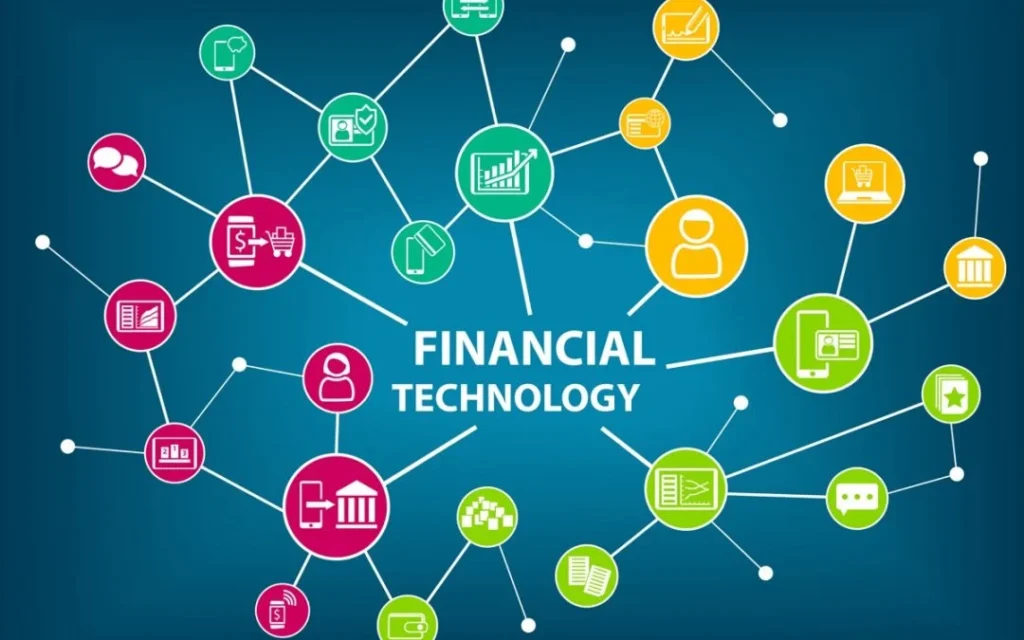Blockchain technology has been revolutionizing the financial sector in recent years. How Blockchain Technology is Changing the Financial Sector by providing secure and transparent transactions, reducing the need for intermediaries, and enabling faster and cheaper cross-border payments. This technology has the potential to streamline processes, reduce fraud, and increase financial inclusion.
One of the ways in which Blockchain Technology is transforming the financial sector is by offering decentralized and immutable ledgers, which ensure the security and integrity of financial transactions. Additionally, it is reshaping the way financial institutions handle identity verification, smart contracts, and regulatory compliance. This innovative technology is also creating opportunities for new financial products and services, such as decentralized finance (DeFi) and tokenization of assets. As a result, traditional financial systems are being disrupted, and new business models are emerging in the industry.
1. Introduction to Blockchain Technology
Blockchain technology is a decentralized, distributed ledger system that records all transactions across a network of computers. Each transaction is stored in a block, and these blocks are linked together in a chronological chain, creating a secure and transparent record of all activity. This technology was originally created for the digital currency Bitcoin, but its potential applications have expanded to various industries, including finance.
One of the key features of blockchain technology is its immutability, meaning that once a transaction is recorded, it cannot be altered or deleted. This provides a high level of security and trust, as it eliminates the need for intermediaries to validate transactions. Additionally, blockchain technology operates on a consensus mechanism, where network participants must agree on the validity of transactions, further enhancing its security and reliability.
2. Impact on Financial Transactions
Blockchain technology has significantly impacted the financial sector by revolutionizing the way transactions are conducted. It has the potential to streamline and automate processes such as payments, trade settlements, and asset transfers. By removing the need for intermediaries and reducing the time and cost associated with traditional financial transactions, blockchain technology has the potential to make financial processes more efficient and cost-effective.
Furthermore, the transparency and security provided by blockchain technology can help reduce the risk of fraud and error in financial transactions. The immutability of the blockchain ensures that transaction records are tamper-proof, providing a high level of trust and accountability. This has the potential to improve the overall integrity of the financial system and increase confidence among stakeholders.
3. Decentralized Finance (DeFi)
Decentralized finance, or DeFi, is a rapidly growing sector within the financial industry that leverages blockchain technology to offer traditional financial services in a decentralized manner. DeFi platforms enable peer-to-peer lending, borrowing, trading, and other financial activities without the need for traditional intermediaries such as banks or brokerages. This not only reduces costs for users but also provides access to financial services for individuals who may be underserved by traditional banking systems.
By utilizing smart contracts on blockchain networks, DeFi platforms can automate the execution of financial agreements, eliminating the need for intermediaries and reducing the associated costs and delays. This has the potential to democratize access to financial services and create new opportunities for innovation in the financial sector.
4. Tokenization of Assets
Blockchain technology has enabled the tokenization of real-world assets, such as real estate, art, and commodities. Through this process, these assets are represented digitally on a blockchain in the form of tokens, which can be easily traded and transferred. This has the potential to increase liquidity and accessibility for a wide range of assets that were previously illiquid or difficult to divide.
Tokenization also has the potential to democratize access to investment opportunities, as it allows fractional ownership of high-value assets. Additionally, the transparency and security provided by blockchain technology can reduce the risk of fraud and improve the overall efficiency of asset trading and management.
5. Cross-Border Payments and Remittances
Blockchain technology has the potential to revolutionize cross-border payments and remittances by enabling faster, cheaper, and more transparent transactions. Traditional cross-border payments are often slow and expensive due to the involvement of multiple intermediaries and the use of outdated infrastructure. Blockchain-based solutions can bypass these inefficiencies, allowing for near-instantaneous transactions at a fraction of the cost.
Furthermore, the transparency of blockchain technology can provide greater visibility into the flow of funds, reducing the risk of errors and fraud in cross-border transactions. This has the potential to significantly improve the efficiency and accessibility of international payments, benefiting individuals and businesses alike.
6. Regulatory Challenges and Compliance
While blockchain technology offers numerous benefits for the financial sector, its adoption also presents regulatory challenges and compliance considerations. The decentralized nature of blockchain networks and the pseudonymous nature of transactions can make it challenging for regulators to oversee and enforce compliance with existing financial regulations.
Additionally, the global nature of blockchain networks can create jurisdictional issues, as regulations vary across different countries and regions. As a result, there is a need for ongoing dialogue between industry stakeholders, regulators, and policymakers to develop frameworks that balance innovation with consumer protection and financial stability.
7. Future Trends and Developments
As blockchain technology continues to evolve, new trends and developments are shaping the future of the financial sector. This includes the integration of blockchain with other emerging technologies, such as artificial intelligence and the Internet of Things, to create innovative financial solutions. Additionally, advancements in scalability and interoperability are addressing some of the limitations of current blockchain networks, paving the way for broader adoption in the financial industry.
Furthermore, the exploration of central bank digital currencies (CBDCs) and the potential for programmable money through smart contracts are areas of significant interest and investment. These developments have the potential to further transform the way financial transactions are conducted and regulated, leading to a more inclusive and efficient financial system.
8. Conclusion
Blockchain technology is fundamentally changing the financial sector by providing new opportunities for efficiency, transparency, and accessibility. From revolutionizing traditional financial processes to enabling new forms of decentralized finance, the impact of blockchain technology is far-reaching. While there are challenges to address, the ongoing development and adoption of blockchain technology are poised to shape the future of finance and create new possibilities for individuals and businesses around the world.
As the technology continues to mature and evolve, it is essential for industry stakeholders, regulators, and policymakers to collaborate in order to harness the full potential of blockchain technology while addressing any associated risks. By doing so, the financial sector can embrace the benefits of blockchain technology while ensuring a robust and compliant framework for the future of finance.
| Aspect | Impact |
|---|---|
| Security | Enhanced security through decentralized and immutable ledger |
| Efficiency | Streamlined processes and reduced operational costs |
| Transparency | Increased transparency for all transactions |
| Cost Savings | Lower fees and eliminated intermediaries |
| Accessibility | Expanded access to financial services for unbanked populations |
Blockchain technology is revolutionizing the financial sector by providing enhanced security, increased efficiency, transparency, cost savings, and improved accessibility to financial services.



